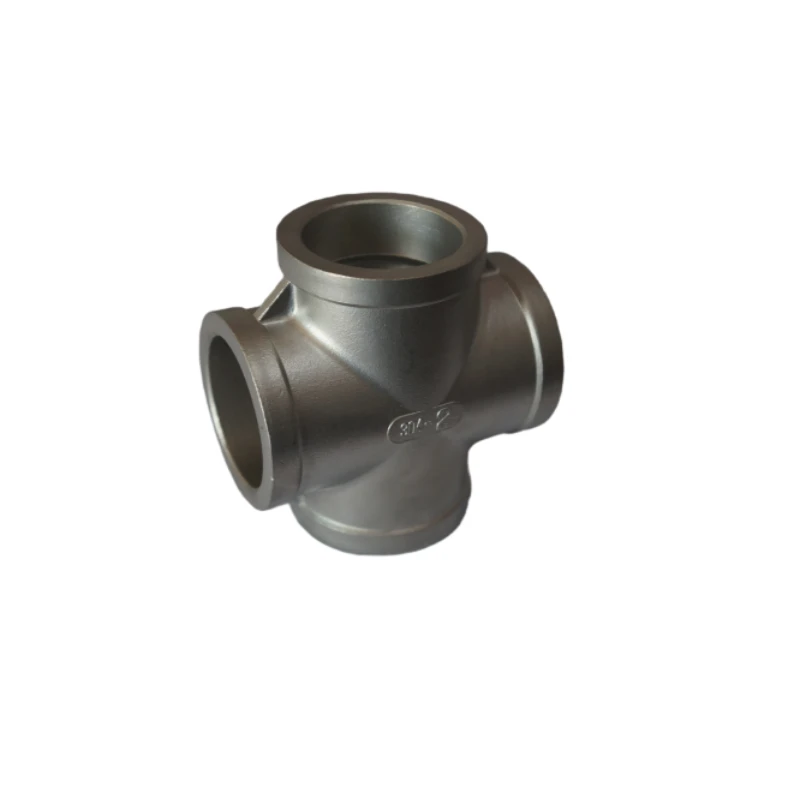Innovative Techniques in Advanced Machining for Enhanced Precision and Efficiency
Advanced Machining Processes A Comprehensive Overview
In today's rapidly evolving manufacturing landscape, traditional machining processes are continuously being transformed to meet the demands of precision, efficiency, and sustainability. Advanced machining processes (AMPs) have emerged as a pivotal technology that not only enhances productivity but also enables the fabrication of complex geometries and materials that were once deemed impractical. This article delves into the various advanced machining processes, their applications, benefits, and challenges.
1. Definition and Importance of Advanced Machining Processes
Advanced machining processes are defined as non-traditional methods that utilize specialized techniques to achieve precision manufacturing. Unlike conventional machining, which primarily involves cutting tools to remove material, AMPs often employ energy sources such as electrical, thermal, or chemical means. The importance of AMPs lies in their ability to machine hard-to-cut materials, generate intricate shapes with tight tolerances, and produce finished products faster while minimizing waste.
2. Types of Advanced Machining Processes
Various AMPs have been developed, each suited for specific applications. Some of the most notable include
- Electrical Discharge Machining (EDM) This process utilizes electrical discharges to erode material from a workpiece, allowing manufacturers to create complex shapes in hard metals and alloys. EDM is especially useful in producing molds, dies, and intricate components in aerospace and automotive industries.
- Laser Beam Machining (LBM) LBM employs focused laser beams to cut, drill, or engrave materials. Its precision and ability to cut through various materials, including metals, plastics, and ceramics, make it a popular choice for industries ranging from electronics to jewelry.
- Ultrasonic Machining (USM) This technique combines ultrasonic vibrations with a slurry of abrasive particles to remove material. USM is particularly effective for brittle materials like glass and ceramics, making it valuable in industries such as optics and semiconductor manufacturing.
- Water Jet Machining (WJM) Utilizing high-pressure water mixed with abrasive materials, WJM can cut through a wide range of materials without generating heat. This characteristic preserves the integrity of heat-sensitive components and is widely used in industries like stone cutting and food processing.
- Electrochemical Machining (ECM) ECM involves using electrical energy to remove material through anodic dissolution. This process is particularly beneficial for creating complex shapes in conductive materials, making it indispensable in the aerospace sector for turbine blade manufacturing.
3. Benefits of Advanced Machining Processes
The adoption of AMPs leads to several advantages
advanced machining process pdf

- High Precision and Accuracy AMPs can achieve tolerances in the micrometer range, which is crucial for modern applications where precision is paramount.
- Material Versatility AMPs can work with a diverse range of materials, including metals, composites, and ceramics, expanding design possibilities
.- Reduced Tool Wear Many AMPs experience minimal tool wear compared to traditional machining, resulting in longer tool life and reduced replacement costs.
- Enhanced Efficiency AMPs can often perform multiple operations in a single setup, reducing cycle times and increasing overall productivity.
4. Challenges Facing Advanced Machining Processes
Despite their numerous benefits, AMPs also encounter certain challenges
- High Initial Costs The equipment required for advanced processes can be expensive, making it less accessible for small and medium-sized enterprises.
- Operator Skill Requirements Advanced processes often require highly skilled operators and engineers to manage the intricacies of the technology.
- Process Limitations Each AMP has its specific limitations regarding material thickness, workpiece size, and the type of materials that can be machined effectively.
5. Future Trends in Advanced Machining
The future of advanced machining processes looks promising, with ongoing research aimed at enhancing process efficiency, reducing costs, and expanding material compatibility. Innovations such as hybrid machining, which combines two or more processes, and the integration of automation and artificial intelligence, will likely play a significant role in reshaping the manufacturing landscape.
In conclusion, advanced machining processes are at the forefront of modern manufacturing, providing solutions for complex machining challenges across various industries. As technology continues to advance, AMPs will not only enhance production capabilities but also contribute to the sustainable practices that are increasingly vital in today’s economy. Companies that invest in these processes will be well-positioned to thrive in the competitive global market.
-
OEM Sand Cast Pump Valve Fittings - Baoding Hairun | Precision Engineering, CustomizableNewsJul.30,2025
-
OEM Sand Cast Pump Valve Fittings - Baoding Hairun Machinery And Equipment Trading Co., Ltd.NewsJul.30,2025
-
OEM Sand Cast Pump Valve Fittings - Baoding Hairun Machinery And Equipment Trading Co., Ltd.NewsJul.30,2025
-
OEM Sand Cast Pump Valve Fittings - Baoding Hairun Machinery|Precision Engineering&Fluid ControlNewsJul.30,2025
-
OEM Sand Cast Pump Valve Fittings - Baoding Hairun Machinery And Equipment Trading Co., Ltd.NewsJul.30,2025
-
OEM Sand Cast Pump Valve Fittings-Baoding Hairun Machinery And Equipment Trading Co., Ltd.NewsJul.30,2025















